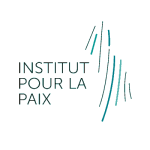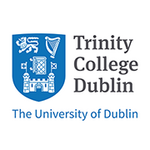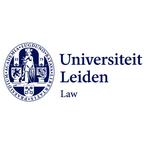Displaying 39 universities offering MA programmes in Peace from all over the globe.
If you want to have a university or MA programme added, do submit new content!
Ireland
University of Dublin
Race, Ethnicity, Conflict: this one-year postgraduate course examines the techniques used by states and international agencies to manage peoples and conflict, their social and cultural impact and the responses they elicit. It applies a wide variety of sociological theories to racialization, gender, migration, ethnic conflict and peace-making. Students are taught to complete an independent research project on these issues
University of Limerick
Peace and Development Studies: this programme introduces students to key debates about conflict resolution, peacebuilding and processes of economic and political development. As such, a prime objective of this programme is to provide students with awareness of the complexities of peacebuilding and development in diverse global case studies, thereby encouraging graduates who can contribute effectively in these areas at a professional level.
Italy
Scuola Superiore Sant'Anna
International Security Studies: security studies have become a crucial domain to analyse and understand the challenges of international politics. From traditional ideas of security related to armed conflicts and national security to non-traditional concerns such as energy crises, migration, terrorism, pandemics and climate change, security studies represent a framework for the analysis of multi-level challenges to our global society. The Master’s Degree in International Security Studies (MISS) provides the students with both theoretical and practical perspectives on the dynamics of contemporary security, as well as on the evaluation of responses, and their implications.
Università di Pisa
Peace Sciences: the Interdisciplinary Centre “Sciences for Peace” (CISP-Centro Interdisciplinare Scienze per la Pace) is a “University Centre for Training and Research” established in 1998. CISP is a reference point for professors and researchers at the University of Pisa who wish to carry out research, training and teaching activities – or, more generally, cultural promotion – related to the construction of sustainable peace. With “sustainable peace” we mean not merely the absence (real or illusory) of war, but a goal to pursue by working for social justice, dealing with the non-violent resolution of conflicts, repudiating violent means and proscribing war in any case. CISP is a key reference point for the teaching activities developed in the Bachelor’s and Master’s Degree Courses in “Peace Sciences”.
Malta
University of Malta
Conflict Resolution and Mediterranean Security: this dual degree programme combines the faculties of two renowned educational institutions: George Mason’s Jimmy and Rosalynn Carter School for Peace and Conflict Resolution School, the oldest and largest programme of graduate conflict studies in the United States, and the University of Malta’s recently established Centre for the Study and Practice of Conflict Resolution (CSPCR), whose main interests are, inter alia, conflict resolution practices, the relationship between conflict and human rights, as well as justice and security.
Netherlands
Radboud University
Conflict, Territories and Identities: how can violent conflicts be analysed and addressed? This is a recurring question, particularly given the ongoing violence in countries like DR Congo and Afghanistan, and the outbursts of civil war in Iraq and Ukraine more recently. In this Master's you will study national and international conflict, and the territorial boundaries and borders in the minds of the people involved. You will also become familiar with the theory and practice of those organisations, such as NGOs and the UN, who intervene in violent conflict and its aftermath, as well as the efforts by local actors to transform and resolve conflict.
University of Amsterdam
Conflict Resolution and Governance: The Master’s in Conflict Resolution and Governance offers you education on the broad spectrum of conflict resolution theory, research and practice. The causes, characteristics, significance and consequences of conflicts are studied in relation to the dynamics of public governance. You will learn how to analyse conflicts, negotiate their resolution and link conflict research with its practice.
University of Groningen
International Humanitarian Action: this programme is known for its interdisciplinary, multicultural, and multilingual teaching by interfaculty staff, in-house experts, and field-experienced guest lecturers. You will learn to evaluate humanitarian emergencies, study the causes of conflicts and disasters, analyze different coping strategies, and assess intervention and reconstruction programmes. As a graduate, you will have the capacity to act at all levels of cross-cultural humanitarian relief operations and to enhance professional delivery of assistance and substantial actions.
University of Leiden
Peace, Justice and Development (Advanced LL.M.): in the Public International Law programme, you will gain a thorough understanding of the legislation that governs international relations in an increasingly complex, interdependent global society.
Utrecht University
Conflict Studies and Human Rights: how do international paramilitary groups, like Wagner, affect armed conflicts? How do new technologies, such as drones and artificial intelligence affect the dynamics of armed conflict and war? Why are the cycles of police violence and urban uprisings recurring in the French banlieues? Why did MINUSMA, the UN mission in Mali, decide to leave and why is it so hard to end the armed conflicts in this country? Does climate change lead to new types of armed conflict? In our MA programme in Conflict Studies and Human Rights, we delve into these pressing questions and more.













